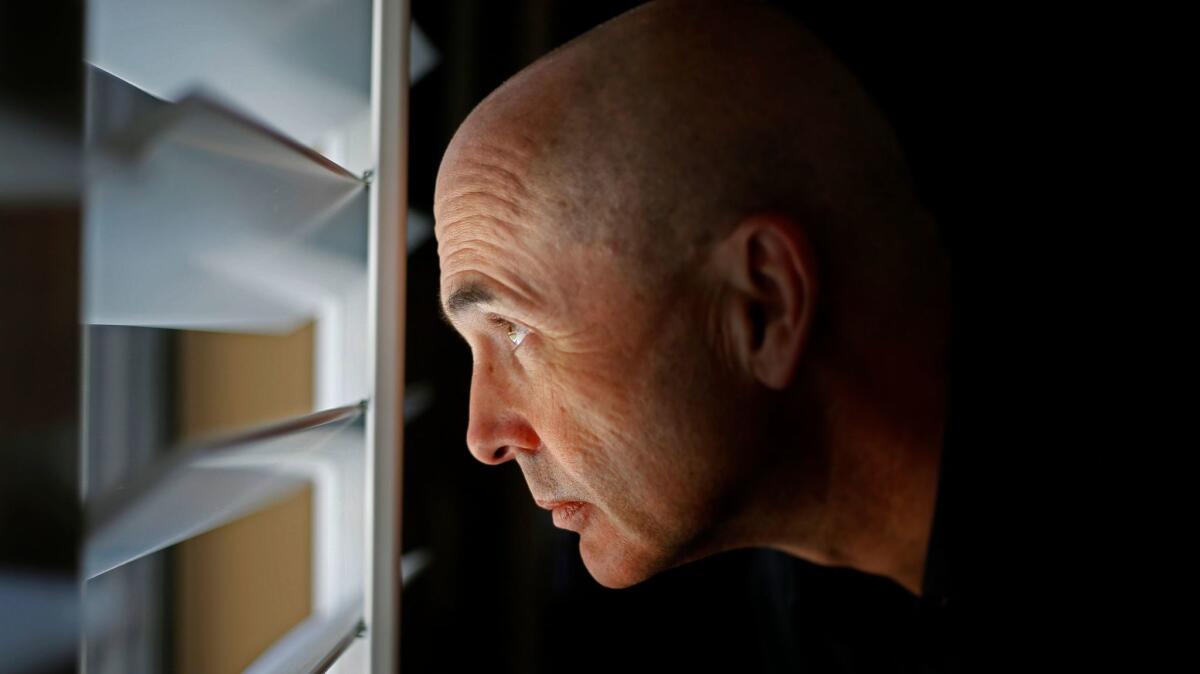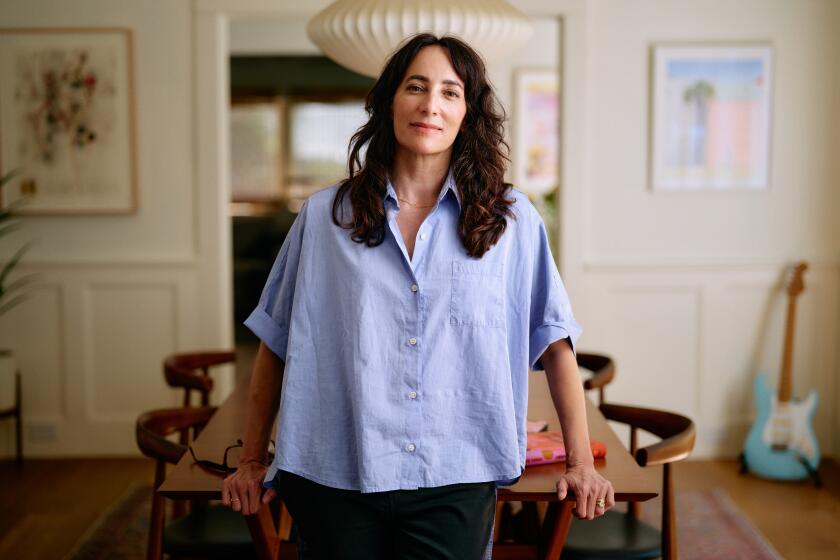After ‘The Cartel,’ Don Winslow’s cop novel ‘The Force’ is sneakily subversive

William S. Burroughs once said, “The only way I like to see cops given flowers is in a flower pot from a high window.”
New York Police Detective Denny Malone, the main character of Don Winslow’s 20th novel, “The Force,” has been on the receiving end of a few of those pots.
Malone is the de facto leader of the Manhattan North Special Task Force, which is typically shortened to “Da Force” (and is good for at least three “Star Wars” references), an elite crime-fighting unit based in Harlem.
Malone and his crew are throwbacks, which is to say Winslow unabashedly traffics in blatant stereotypes. Malone’s father was an Irish cop, his brother was a fireman who died during 9/11, and his soon-to-be-ex-wife and mother of his two children is a bitter redhead from an Irish American enclave in Staten Island. Malone drinks Jameson’s Irish whiskey, has tattoo sleeves and punches a heavy bag in his studio apartment because of course he does.
Malone’s job description at Da Force is simple: “Hold the line.” He is envied by his peers and feared by his enemies and sometimes vice versa because Malone is not above accepting favors, taking cuts and shaking down the criminals he pursues for a piece of the action that keeps getting bigger and bigger to feed his bottomless greed.
But these are tough times for anti-crime units that engage in extra-legal activities in gentrifying New York City. “These days, every cop’s got a bull’s-eye on his back,” Malone thinks.
...everyone wants a piece of Malone and with good reason: He’s dirtier than the water in a Nathan’s hot dog cart.
The slings and arrows come not just from the “mopes” and “skels” in the housing projects or Black Lives Matter supporters downtown but from Malone’s by-the-book captain, the Internal Affairs Bureau, the higher-ups in the police commissioner’s and mayor’s offices, and even the U.S. attorney for the Southern District of New York. From the snitches in the street to the feds in Manhattan, everyone wants a piece of Malone and with good reason: He’s dirtier than the water in a Nathan’s hot dog cart.
And Malone knows it: “You need the money, the cash flow, but it’s more than that, admit it. You love the game. The thrill, the taking off the bad guys, even the danger, the idea that you might get caught.”
The novel opens with a pair of prologues. In the first, Malone is taken into custody and sent to prison. The second goes back to a scene of horrific violence that ultimately comes to haunt Malone. Chapter 1 begins midway between these two episodes, and the bulk of the novel is devoted to showing Malone’s fall from grace as he digs himself deeper and deeper into the hole.
This first section is fairly slow as Winslow burnishes the plot with backstory to explain how police work is dangerous business that takes an emotional toll that many cops deal with by self-medicating. If you’ve owned a television since the Carter administration this is not exactly a newsflash. We’ve been down these mean streets before.
“So you feel for the old lady victim, but hate the mutt who did it; you sympathize with the store owner who just got robbed, but despise the mope who robbed him; you feel bad for the black kid who got shot, but hate the … who shot him.” Malone thinks, using a racial slur.
This from the same Don Winslow who took us inside the California marijuana industry in “Savages” before there was such a thing and who probably knows more about Mexican cartels and the opioid drug epidemic in the United States than any other novelist working today?
Yes, Malone’s racist rhetoric and cop talk is off-putting, but Winslow isn’t just doing right by his sources in law enforcement or throwing red meat to the Blue Lives Matter crowd that uncritically paints all policemen as heroes. Winslow is using his considerable gifts for taking readers into unfamiliar territory and making them feel at home. It’s remarkable to cozy up to a cop this dirty; we’re talking Whitey Bulger level of sleaze and intimidation.
For all the lip service Winslow pays to the boys in blue, make no mistake “The Force” paints the police in a very unflattering light. Malone isn’t just an epically brutal detective with sociopathic tendencies, he’s a product of a system in which corruption is the air cops breathe. Of course, it’s not just the police who are crooked but the entire judicial system, which means the stakes are high for everyone.
Malone is at best an anti-hero whose base instincts make him very good at what he does, and as the book kicks into high gear he makes things profoundly worse for everyone who comes in contact with him. The pressure on Malone becomes so intense it makes Henry Hill’s paranoia in “Good Fellas” look like a mild case of OCD.
As Malone unravels so does the city. Set against a backdrop in which all of New York waits for a grand jury to weigh in on the shooting of an unarmed black teenager by a white cop, Winslow expertly ratchets up the tension.
His mastery over his material makes the novel compulsively readable in spite of its epic scope. But what makes “The Force” unique among police procedurals is that it’s not the story of a rogue cop with a code or a bad apple who spoils the barrel, but a sneakily subversive post-Ferguson thriller.
Don Winslow
William Morrow: 496 pp., $27.99
More to Read
Sign up for our Book Club newsletter
Get the latest news, events and more from the Los Angeles Times Book Club, and help us get L.A. reading and talking.
You may occasionally receive promotional content from the Los Angeles Times.







